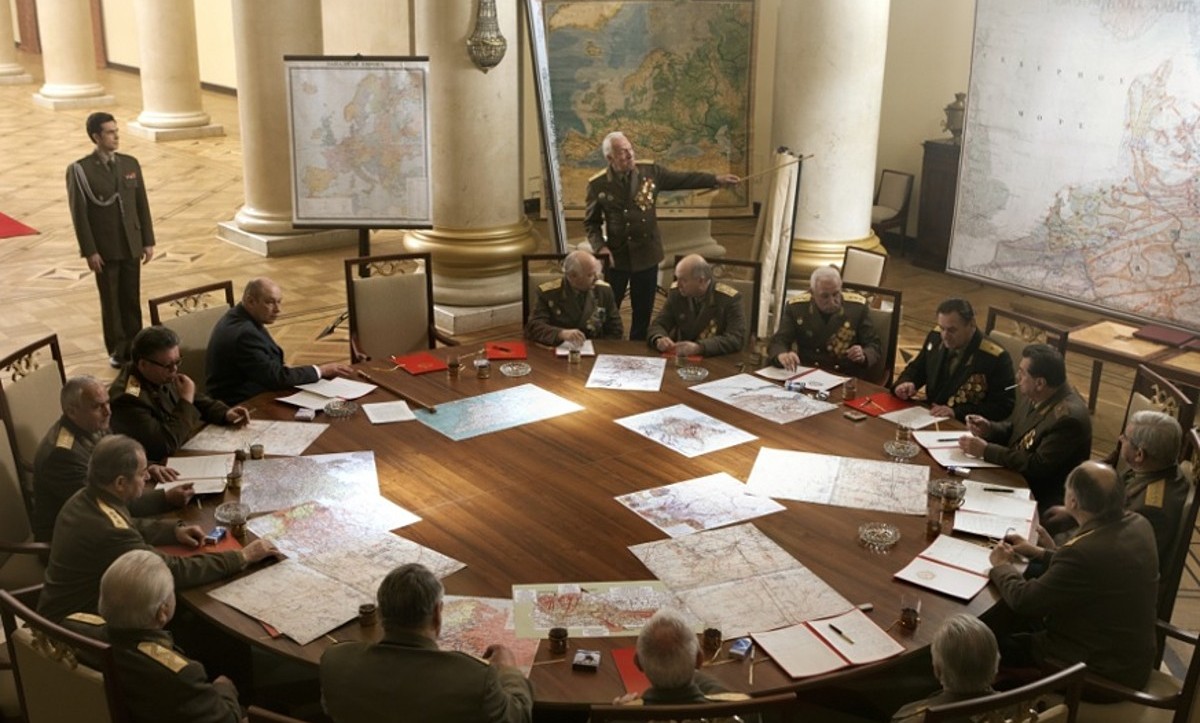The timing of coming to write this review couldn’t be any more topical. This is a well acted and well executed Polish film focusing on the real life exploits of Ryszard Kukliński, codename Jack Strong, who, throughout the 1970’s, used his position within the Polish military to pass on Soviet secrets to the CIA. The story has a strong connection with that of the rise of the Solidarity movement, documented in Walesa – Man of Hope, as both historical narratives were largely generated by the brutal and lethal suppression of the 1970 riots in the Polish north, riots begat by a crippling rise in food prices.
Marcin Dorocinski gives a wonderful and sympathetic central performance as Kukliński, and the rest of the cast, including Patrick Wilson, Maja Ostaszewska and Dagmara Dominczyk all do a convincing job of selling a tension fraught scenario of espionage and political consequences. The language oscillates between Polish, English and Russian, with Wilson’s verbal adroitness in Polish a bit of a revelation (until I realised he’s married to Dominczyk – interestingly, commentary has been made in the media of late on the dramatic rise in the number of Scottish men learning Polish, a rise no doubt directly proportional to the large influx of incredibly beautiful Polish ladies to our shores …) and the most poignant aspect of the plot involves one Russian general’s secret plan to effectively use Eastern Europe to start World War III, and how the plan was thwarted.
How many of the facts have had liberties taken with them here is difficult to tell, but in light of Russia’s recent belligerent activity in the Black Sea, it hardly sounds fanciful. This, then, is very much an important political film of our current time and not just a dramatic retrospective of what the whole world thought was a bygone era. Indeed, it seems like Putin regards international politics as markedly similar to a game of Diplomacy (wherein Sevastopol is one of the most hotly fought over areas for its strategic port) and comparisons with Hitler’s annexation of Austria are not only merited, but quintessential to the furore of debate going on. In the game of Diplomacy it’s vital early on to get the territories you want whilst seeming as reasonable as possible to the other players in the vicinity – if you take a look below at Hardtalk’s Stephen Sackur interviewing Putin’s spokesman and long time major player in the Russian government’s media machine Dmitry Peskov, aired just a few hours ago, you don’t have to be an expert at reading people to tell he’s not quite the full shilling.
Indeed, if Peskov was playing the board game he would be promptly laughed out of Europe on the basis of this interview. It was interesting too that Sackur makes mention of the recent referendum and how not only did it take place under the threat of Russian guns, but that the people had no option in the vote to the keep the status quo in place. This is a pretty major point that the BBC have elsewhere repeatedly not made mention of in their regular updates – in fact they actually seem to be giving the impression there is a level of legitimacy to the vote, with one of the correspondents asking a Ukrainian politician if he didn’t simply have to now accept Crimea has become a part of Russia, which is way, way off the mark for independent journalism.
There would seem to be, at this juncture when tensions and military aggression are rising, a rather opportune way out for the Ukrainian leadership. They should first settle and unite the rest of the country, using every ploy they can think of and perhaps with the timely bringing forward up of the upcoming May presidential election, and simultaneously the majority in their parliament, the Rada, should unite in promising a new referendum in Crimea should the Russians leave voluntarily as speedily as they arrived – a referendum that would be fair and monitored by the international community, including Russian delegates. This would put the ball back into Putin’s court and throw their claims of legitimacy right back at them. It’s very unlikely Russia would back down now given Putin has signed the papers accepting Crimea, but it would make their position much more difficult and buy the Ukrainians more time, and if they somehow did retreat even if the Crimea still went and joined Russia, it’s still better than bloodshed and the escalation and destabilisation that most likely Moscow is hoping will arise. Plus it would give Russia a graceful way of regaining some international favour, as they’d surely fancy their chances at Crimea willingly joining them, and indeed it could set a favourable precedent for them with other Russian speaking areas along their border, but a diplomatic battle to win over the people of a region, is always a million times more preferable to an armed struggle against vastly superior military forces, so it’s kind of a win-win given the current powder keg sizzling away on the peninsula.
Interestingly, toward the end of ‘My Perestroika’ one of the interviewees voices his concern that the current Russian government is heading back down the path of the old Soviet ways of repression and indoctrination, a view which seems to be borne out by events. It would perhaps be telling to see a fair and free independence referendum taking place in Chechnya, or indeed throughout many of the other constituent parts of Russia …
Here’s that interview

